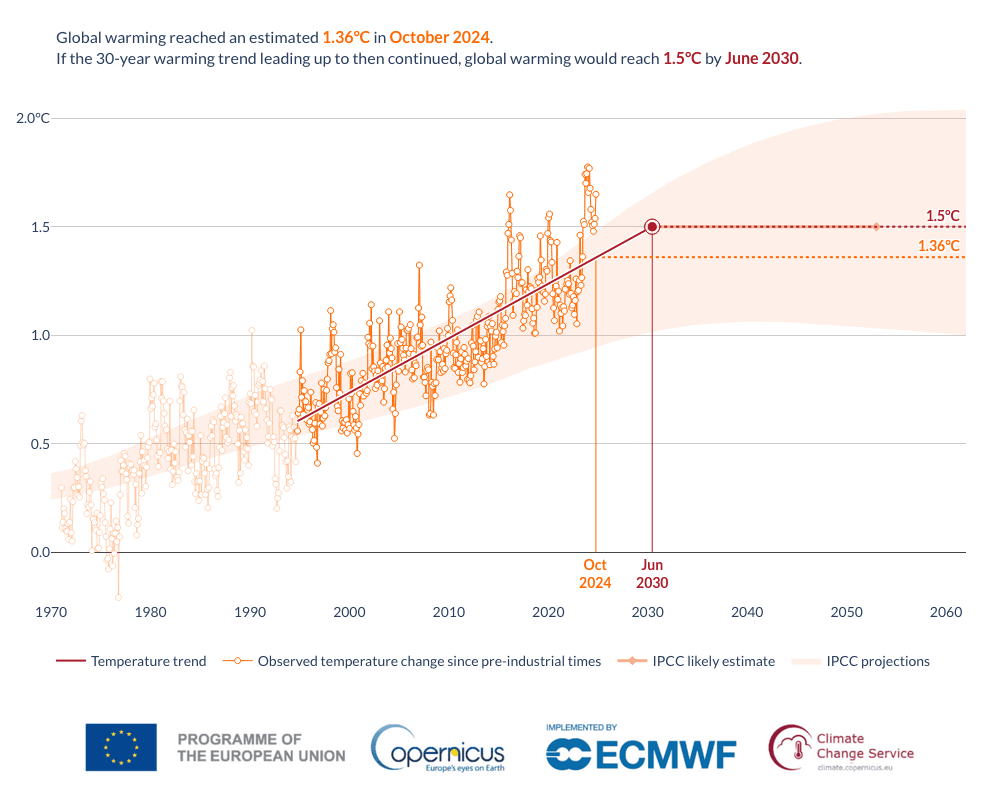How close are we to exceeding 1.5°C of global warming?
Surpassing 1.5°C above pre-industrial levels – a threshold set by the Paris Agreement – may seem like a distant concern, but it could be nearer than expected. Experts predict this milestone is likely to occur sometime between the late 2020s and early 2050s. Explore where we currently stand and how quickly we could reach the 1.5°C limit if warming continues at its current rate.
Climate Change Clock
The reference for the countdown above is taken from C3S global temperature trend monitor (link). This countdown has started on December 25th, 2024. The data is extrapolated from global mean temperature data till October 2024, and based on this data, the 1.5 degree C warming is likely to reach by June 2030.

Context
What does it mean to have 1.5°C of global warming?
Having 1.5°C of global warming means that the average global temperature has risen 1.5°C above pre-industrial levels. Intergovernmental Panel on Climate Change (IPCC) considers the reference period 1850–1900 for representing the pre-industrial temperature levels. This temperature increase is significant because it reflects a substantial change in the Earth’s climate system, driven primarily by human activities such as burning fossil fuels, deforestation, and industrial processes.
A 1.5°C rise might seem small, but it has far-reaching consequences. It can lead to more frequent and severe extreme weather events, rising sea levels, melting ice caps, and disrupted ecosystems. Vulnerable populations, particularly in low-lying and developing regions, face heightened risks from floods, droughts, and food insecurity. Limiting warming to 1.5°C, as outlined in the Paris Agreement, is crucial to minimizing these impacts and avoiding irreversible damage to our planet.
Our planet's climate is a very non-linear system and a perfect example of chaos theory. A slight change in the governing/initial conditions can change the resulting climate significantly, just like explained by the famour butterfly effect. A significant temperature shift to the higher side is certainly not good for the current eco-system which includes us, the humans. Our planet has seen worse climate before, so the planet will survive, it is just that humans may not survive this without making any significant investments in adaptation and mitigation strategies!
Let's preserve our current climate for the next generations!
